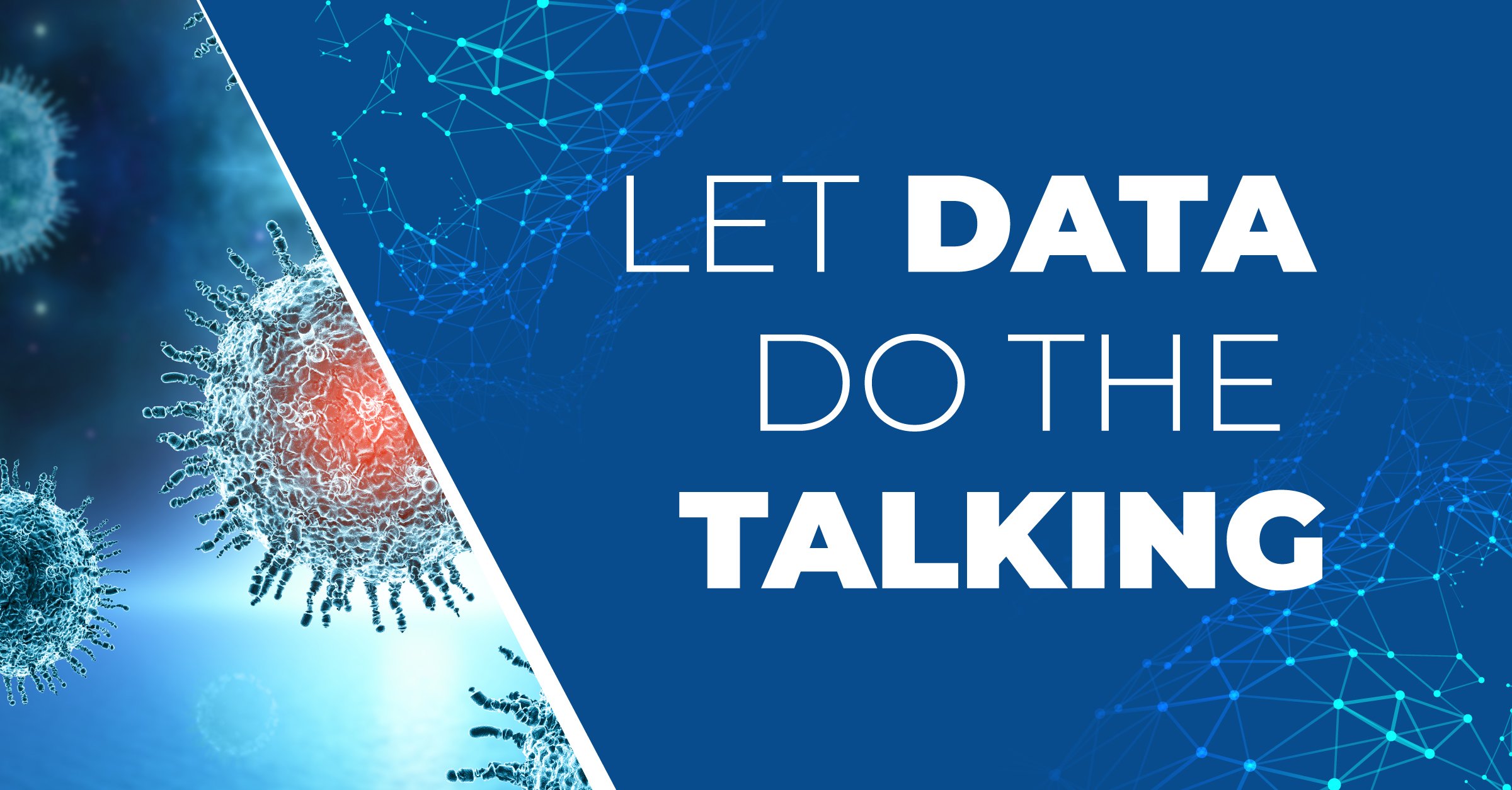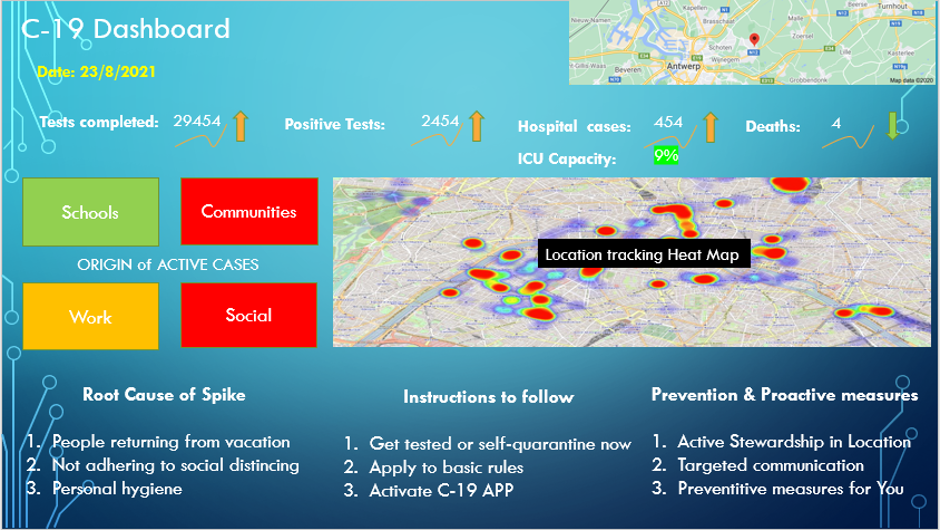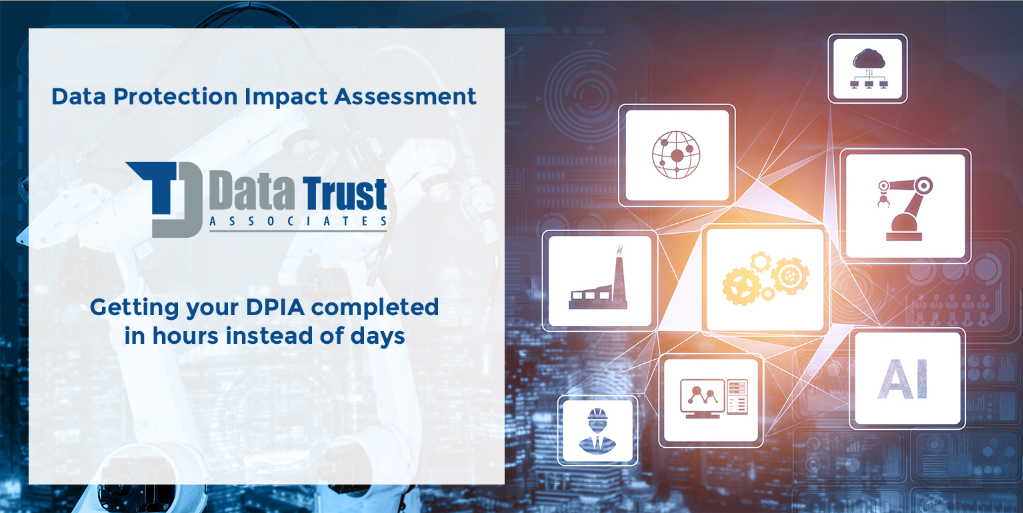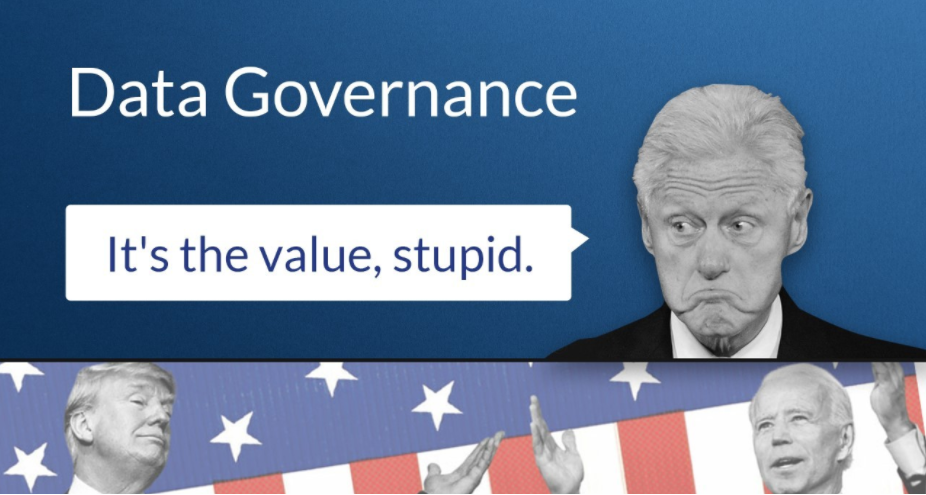It is a well known fact that wartime produces some of the most magnificent progresses in science and innovation. Think of everyday concepts like duct tape, internet, the autobahn and GPS that came to civilian life after WW2. These inventions are examples of a larger observation: Crises causing people from all walks of life to interact and come up with solutions to the problem at hand. Cross-pollination of disciplines at its finest!
We are currently battling a crisis of a magnitude the world has never seen in generations. One that is turning our economic and social lives upside down. Nevertheless, we are leaving it to healthcare and the government to solve this (increasingly systemic) problem
As data professionals, here are our two cents.
 The case for an integrated C19 dashboard
The case for an integrated C19 dashboard
As the vaccine is luring around the corner, euphoria is making people forget such a solution won’t be optimal either. The virus might mutate, we might not have enough vaccines at first or Covid-20 might be developing as we speak. One way or another we will have to live with outbreaks like this. I can’t help but think there must be a better instrument at hand than the blunt force of putting the economy on hold.
Enter the C-19 dashboard, an example of what is possible by using data intelligence to empower our citizens.
As a data professional, you can best compare it to a KPI dashboard for the CEO of a company. Only now, we all have access to this information and we all share responsibility for the results. In such a dashboard, the focus lies on data-driven decisions instead of arbitrary rule-making.
Some examples?
- Which specific areas should we avoid right now and WHY?
- What age group carries the highest risk for infection and WHY?
- Should we close schools and WHY?
- Should we close shopping streets in specific areas and WHY?
- Should we close bars and restaurants and WHY?
- What can we do to help, as a community?
We believe strongly that a data-driven approach takes the guesswork out of the equation, leading to more support and appreciation from citizens and business owners alike. Another benefit of having a trusted nation-wide dashboard, is that it provides a clear and coherent communication channel backed by both the medical world and policy makers.
A striking contrast to the cacophony of expert advice, different media outlets and government guidelines that prevails today.
So where do we get the data?
To put data to use, we have to possess it first. In the past months, most governments have spent billions on this endeavor. They collected large amounts of aggregated data from telecom operators, developed a corona-app to track interactions and set up contact-tracing call centers. In most EU countries (unlike China, a different story altogether), these initiatives were anything but a success.
The reason? Most people didn’t know about it. Those that did either couldn’t care less or did not trust how their data would be used. A problem of commitment and confidence.
Active data citizenship
Like it or not, ever since the dawn of the digital age, we have all been baptized as data citizens. Up until now, this role has mostly been a passive one. However, to implement large scale data initiatives, we need active data citizens.
An active data citizen understands the difference between collecting aggregate data and tracing an individual’s digital footprint. Active data citizens also know that they own their data. And, most of all, they understand when to give and when not to give consent.
Our world is increasingly dominated by data governance, data protection, data intelligence and any other buzzwords involving data. A trend that will only continue as the data volumes grow. We should start educating people on data and its intrinsic value.
Never let a good crisis go to waste
As Churchill said it well over half a century ago: “Never let a good crisis go to waste”. Crises, no matter how painful they are, are always a great learning opportunity. This pandemic has certainly given us all food for thought.
Here are some learnings from the data world:
- Let’s use data wisely to empower our citizens and inspire trust
- Use data-driven decisions instead of arbitrary rule-making
- Provide actionable insights and a coherent communication channel
- Push for active data citizenship through data education
During this pandemic the focus has often been on fear as a means to (de)mobilize people. Obviously, the data-driven approach is not the solution to the problem, but it can help to inspire hope and a way out of this crisis.
What do you think?
Have you got more ideas on how data can help?
Want to find out more about our distinctive approach to enabling data governance? Please contact us at info@datatrustassociates.com.

 The case for an integrated C19 dashboard
The case for an integrated C19 dashboard


